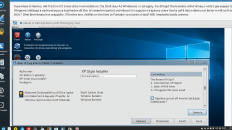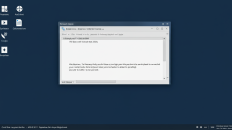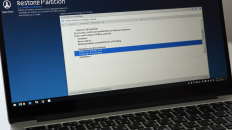Windows 11’s Latest Security Update Linked to SSD Failures: What You Need to Know
In the ever-evolving landscape of technology, operating system updates are both a boon and a bane. They promise enhanced security, improved performance, and added features. However, a recent automated update for Windows 11 has raised concerns among users, particularly regarding solid-state drives (SSDs). Reports indicate that the latest security patch, identified as KB5063878, is causing several users’ SSDs to fail during high-demand operations, particularly when writing a large number of files simultaneously.
The Nature of the Problem
As more users turn to SSDs for their speed and reliability, the implications of such failures can be considerable. According to numerous user reports, the issues seem to manifest when users are performing data-intensive tasks, such as transferring large files, backing up data, or running virtual machines. In these scenarios, the SSD can become overwhelmed, leading to abnormal behavior, including data corruption, unresponsive systems, and in the worst cases, complete drive failure.
User Reactions
The tech community has responded with concern and outrage. Many users have taken to forums and social media to share their experiences, describing unexpected crashes and the inability to retrieve files. As SSDs tend to have a limited write lifespan, even minor software bugs can create significant issues for users who rely on their drives for critical work. The recurring theme in many of these discussions is a sense of frustration, with users feeling that their data and the longevity of their hardware are at risk.
The Official Response
Microsoft has acknowledged the reports and is currently investigating the issue. While they have not yet issued a fix or update addressing this specific problem, they are encouraging users affected by the SSD failures to reach out to support for guidance. In the meantime, they recommend some best practices for those who may need to write large amounts of data. This includes avoiding simultaneous large transfers and regularly backing up important files.
Mitigation Strategies
While waiting for a resolution from Microsoft, users should consider implementing several strategies to mitigate the risks associated with the latest update. Backing up data frequently is crucial—using cloud storage solutions or external drives can protect against potential data loss. Additionally, monitoring SSD health through built-in or third-party tools can provide insights into the drive’s performance and preemptively signal issues before they escalate.
Exploring Alternatives
For some users, it may be worth exploring alternative operating systems or temporarily rolling back the update until a more permanent fix is available. While not all users may be comfortable with this, it can prevent the risk of data loss or hardware malfunction for those heavily reliant on their systems.
Conclusion
As users continue to grapple with the fallout from Windows 11’s latest security update, sharing experiences and solutions will be vital in fostering community resilience. It shines a light on the importance of diligent software maintenance and the potential consequences of rushing updates without proper testing. For now, vigilance and precaution are key as we await further guidance from Microsoft on this serious matter.





Add comment